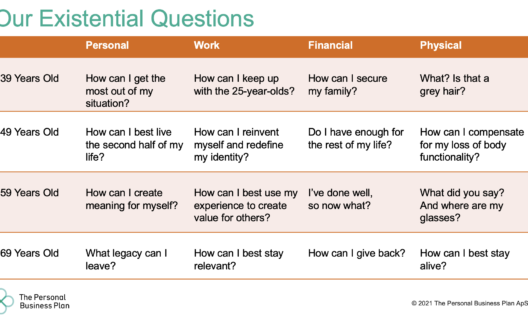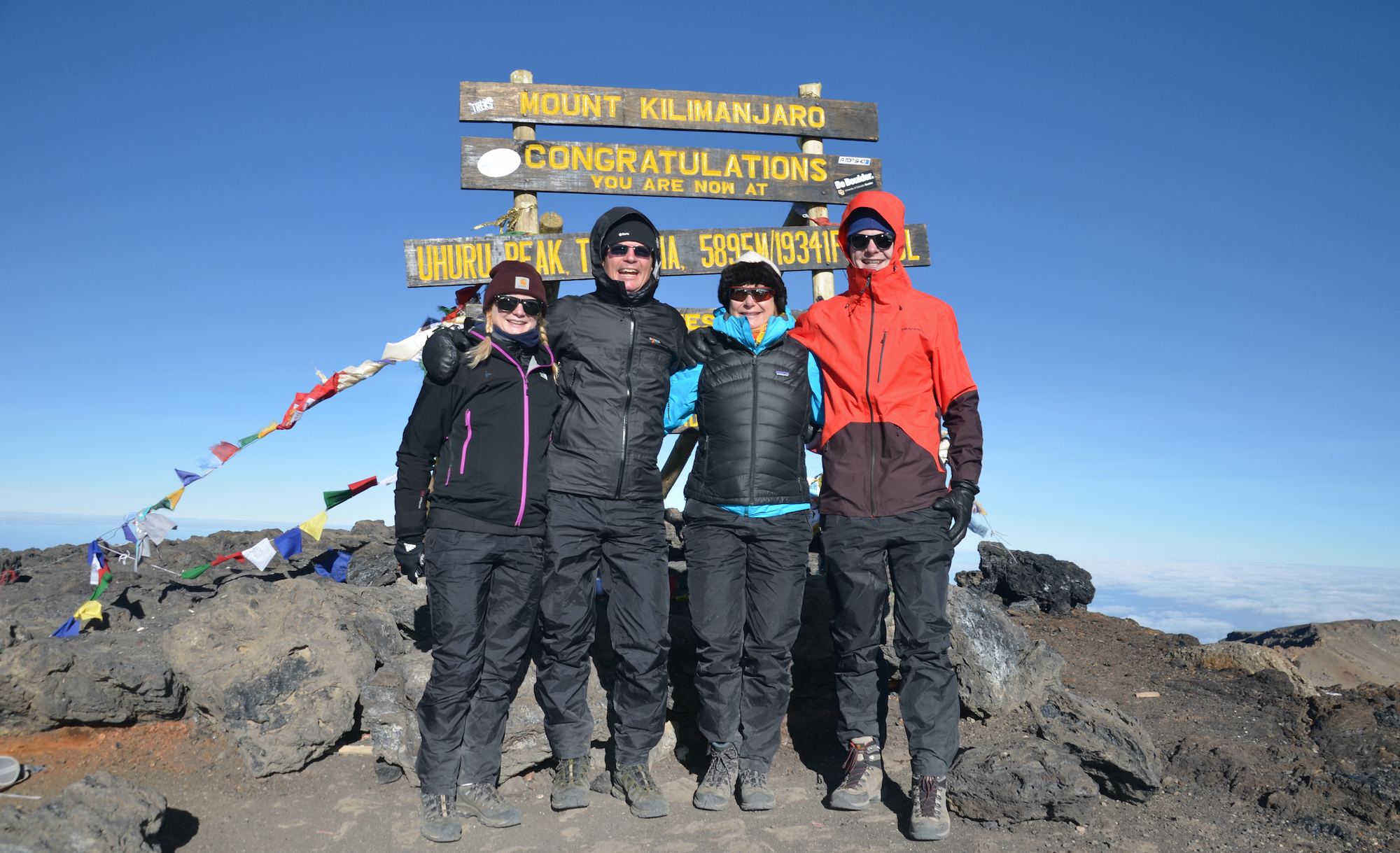
🍀PBP News #6 | Create your Personal Business Plan as an eBook
Dear friend, It’s been a while since you heard from us… Now we’re picking up on our newsletter again. Today’s newsletter is about big things and small: Your own Pe...

The magic combination of the full moon, the glorious sunrise, the view from the top of Africa, and the curve of the horizon was absolutely breathtaking. The adventure gave rise to the following key learning:
My dominating emotion during climbing was humility. The only way to reach the top is by putting one foot in front of the other. Always focus on the next step. Grit, perseverance, and discipline are pivotal. In the end, it is a question of the power of will. Don’t be afraid to be the best. Each step offers the possibility of giving up. Never quit! It becomes much easier for you to quit next time if you’ve given up once. The physical and mental effort has its own reward in the form of endorphins and personal breakthroughs. Pain becomes a weakness leaving your body. You go from Just Do It to Just Done It. Above the clouds, the sky is always blue.
During the five days of climbing, the concept of Mind Monsters came to my mind. My worst fears involved altitude sickness, frostbite, snow blindness, nausea, vomiting, headaches, and dizziness. Fortunately, my imaginary fears never materialized. It became an exemplary ascent. So why did I spend all this time and energy worrying? Did it help? Staying afraid disempowers you and means that you have given up. Courage is to face your fear and act upon it. Professional planning helps. Progressively putting nine layers of clothes on the body and six layers on the legs help, when temperatures fall from +30 Celsius to -20 Celsius. And water is your friend. Drinking five liters of water per day reduces the risk of altitude sickness.
One of my personal challenges during the climb was to ask the crew for assistance. I am a typical stubborn middle-aged man who wants to show strength in the face of adversity and prove that I’m capable of coping on my own. But trying to carry through this type of adventure on your own is foolishness. So before the start of the expedition I had committed myself to ask for help when expertise was needed or when the physical conditions demanded it. For example to ask a crewmember to buckle my rucksack instead of fumbling with it myself in the middle of the night with frozen fingers. My decision to let go of control was handsomely rewarded. It resulted in a strong sense of emotional belonging to the group and I was overwhelmed with gratitude. I felt high-spirited, experienced a release of positivity, and even danced with the guide on the way up. We need to nudge ourselves, moment by moment, by tweaking our behavior and mind-set. That way the journey became: Hip Hop – Non-Stop – To The Top.
The beauty of this whole experience is very closely related to the clear and explicit goal: Getting the whole team to the top. The whole team eventually got to the top, although two of the team members had to fight severe conditions of exhaustion, frostbite, and chest pains. But again: It’s not the altitude – it’s the attitude. The distance between your dreams and reality is called action. It always helps to visualize your goals. And the mental pictures of peak, summit, and top are crystal clear. This reminds me of what my boxing coach once told me: It’s not important to be able to run a marathon now; it’s important to be able to run a marathon when you’re 85. Pain is temporary – quitting lasts forever!
One of the defining aspects of the trip is that you have no electricity and no coverage. This leaves space for both reflection and restitution. You stop worrying about the impression you’re making on others and instead you adjust the impression you’ve been making on yourself. When you are faced with a mountain, the physical challenge totally takes over. You focus entirely on overcoming fatigue. I was very impressed by the relativity aspect. When you camp at 4.600m then it feels like nothing – knowing that in the night you will go to 5.895m.
When do you peak in your life? The answer is “Never”. So I’ll continue climbing mountains – both physical and mental – building a business, and enjoying life.
Thanks for reading 🍀
By Stephen Bruyant-Langer
Dear friend, It’s been a while since you heard from us… Now we’re picking up on our newsletter again. Today’s newsletter is about big things and small: Your own Pe...
Do you want to know, how it is to live in the White House? (At the end of this article, you’ll find some fun facts and private comments). Last summer, I was asked to hel...
You need to find your best coping strategy through this COVID-19 pandemic. My recommendation is to anchor yourself firmly in the future. Protecting your present while bu...
TRANSITIONS: What Is Their Impact on You? And What Types of Transition Do We All Go Through? On April 2, 2019, The Personal Business Plan hosted our second Summit M...
What Happened in France? Luckily, I was in France, when the French team won the World Cup in soccer in July 2018. And what a party! All of a sudden everyone hugged each ...
Dear friend, We’re on the brink of 2019. It’s time for annual reflection: What to continue, what to do differently What matters, what doesn’t (or shouldn’t) matter Basi...
The Personal Business Plan uses cookies. By continuing to browse the site you accept our use of cookies.